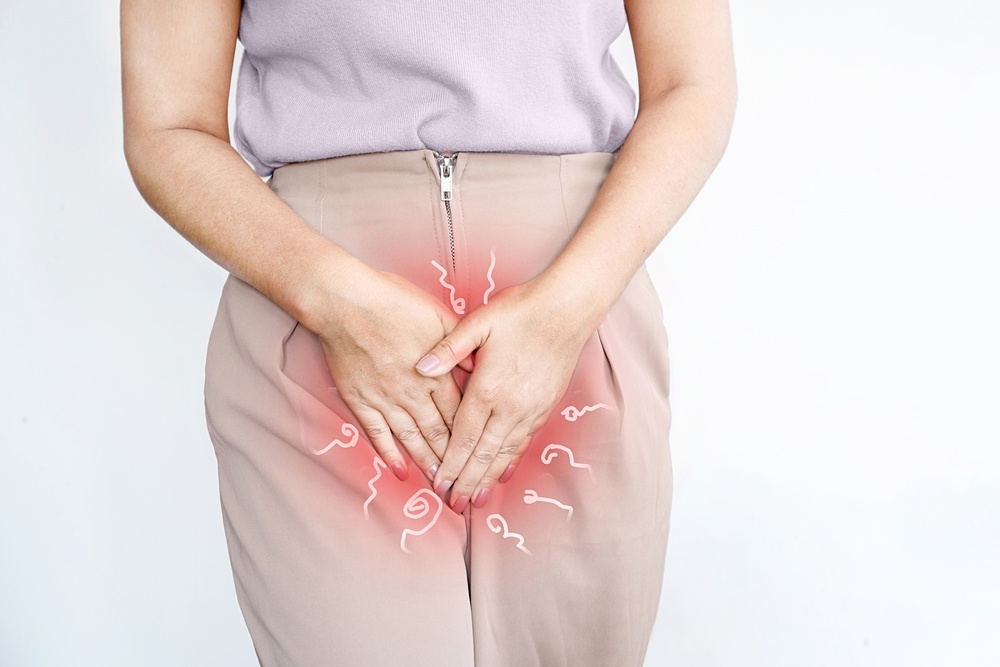Written By: Dr. Manar Jabbar Hussein
Dr. Manar Jabbar Hussein is a Specialist in Obstetrics and Gynaecology in the Department of Obstetrics and Gynaecology at the Al Barsha and Al Barsha South branches of Medcare Medical Centre. She also practices at Medcare Women and Child Hospital. She obtained her MBChB from Mosul University in Iraq and has the distinction of being a Fellow of the Iraqi Commission for Medical Specializations (FICMS) in Obstetrics and Gynaecology.
Updated On:February 14, 2024
Read more.

What is Vaginal Infection?
Inflammation of the vagina is known as vaginitis. The bacteria and yeast that typically inhabit the vagina are out of equilibrium, which is the cause.
You can detect an unusual fragrance in addition to discomfort. You might have a bacterial, yeast, or viral infection. The fragile skin and tissues in this area may be irritated by chemicals in soaps, sprays, or even clothing that comes into contact with it.
But it's not always simple to understand what's happening. To sort it all out and select the best course of action, you'll probably need your doctor's assistance.
Types and Causes of Vaginal Infection
The term "vaginitis" is used by doctors to describe a number of disorders that result in an infection or inflammation of the vagina. The most typical types are:
- Bacterial vaginosis is vaginal irritation brought on by bacterial overgrowth. Usually, it produces a pungent fishy smell.
- Overgrowth of the fungus candida, which is often present in modest levels in the vagina, is known as a candida infection or "yeast" infection.
- The most prevalent STI in women is chlamydia, which often affects those between the ages of 18 and 35 who have several sexual partners.
- Another typical infection spread through intercourse is gonorrhea. It frequently coexists with chlamydia.
- Trichomoniasis is a sexually transmitted infection brought on by a parasite. It increases your vulnerability to other STIs.
- Inflammation brought on by a sexually transmitted virus, such as the herpes simplex virus (HSV) or the human papillomavirus (HPV), is known as viral vaginitis. Genital warts or sores can cause discomfort.
Noninfectious vaginitis is a condition in which vaginal irritation, burning, and even discharge can occur without an infection. It most frequently results from an allergic reaction to or an irritant from goods like:
- Detergents
- Fabric softeners
- Douches
- Scented soaps
- Spermicides
- Vaporizer sprays
Vaginal infection might also result from having your ovaries removed or from menopause's reduced hormone levels. Atrophic vaginitis, a disorder caused by this, can cause your vagina to become dry. You might experience burning and itching in your vagina during sexual activity.
Symptoms of Vaginal Infection
The discharge from a woman's vagina is typically clear or slightly murky and does not cause any itching. It has to do with how the vagina cleans itself, in part. Throughout your monthly cycle, the amount, exact nature, and sensation of it can change. You might experience a very thin or watery discharge at one point and a thicker, more numerous discharge at a different period of the month. All of that is typical.
There may be a problem if your discharge burns, itches, or has a strong odor. You could have irritation throughout the day and mostly at night. Some symptoms can become worse after having sex.
When to see a doctor for Vaginal Infection?
Make an appointment with your doctor if
- you notice a change in the color, texture, or smell of your vaginal discharge,
- you detect any of the following in or around your vagina: itching, burning, swelling, or pain,
- it hurts to urinate,
- and/or it hurts to have sex.
Vaginal Infection Risk Factors
The following factors raise the likelihood of acquiring vaginitis:
- Hormonal alterations, such as those brought on by menopause, birth control medications, or pregnancy
- Sexual behavior
- Having a sexually transmitted disease
- Drugs, such as antibiotics and steroid injections
- Spermicides used as a form of birth control
- Unmanageable diabetes
- Using hygiene products like vaginal spray, bubble bath, or vaginal deodorant
- Douching
- Putting on wet or constricting garments
- Utilizing an IUD as a method of birth control
Vaginal Infection Complications
Due to the inflammation these conditions create, women who have trichomoniasis or bacterial vaginosis are more likely to contract STIs.
Vaginal Infection Diagnosis
Accurate diagnosis is essential to the treatment of vaginal infections.
Pay close attention to the precise symptoms you experience and when. Be prepared to describe the discharge's color, texture, smell, and amount. Do not douche before visiting the doctor's office or clinic; doing so will make accurate testing challenging or impossible. Some medical professionals will advise against having sex in the 24 to 48 hours before your checkup.
Even if you are confident that you know what you have, it is still advisable to visit your doctor before trying any over-the-counter drugs.
Vaginal Infection Treatment
The cause of vaginitis affects the course of treatment. For instance, you might require:
- medications for a sexually transmitted illness
- antifungal medication for thrush
- vaginal lubrication, vaginal moisturizer, or hormone therapy for menopause symptoms
- treatment with steroids for a skin condition
Vaginal Infection Prevention
To prevent vaginal infections, consider the following:
- Keep yourself dry and clean. However, doctors advise against using vaginal sprays or highly fragrant soaps in this area. Douching could transmit or hide an infection in addition to causing annoyance. Additionally, it gets rid of the good bacteria that clean up after themselves in your vagina.
- Avoid wearing clothing that absorbs moisture and heat. Yeast infections can be caused by nylon underwear, tight jeans, sweat-wicking gym shorts and leggings, and pantyhose without a cotton strip.
- The greatest approach to stop illnesses from spreading between sexual partners is by using condoms.
- Have an annually thorough gynecologic exam, which should include a Pap test if your doctor advises it.
References
Egan, M. E., & Lipsky, M. S. (2000). Diagnosis of vaginitis. American family physician, 62(5), 1095-1104.
Hainer, B. L., & Gibson, M. V. (2011). Vaginitis: diagnosis and treatment. American family physician, 83(7), 807-815.
Mills, B. B. (2017). Vaginitis: beyond the basics. Obstetrics and Gynecology Clinics, 44(2), 159-177.
Owen, M. K., & Clenney, T. L. (2004). Management of vaginitis. American family physician, 70(11), 2125-2132.
Sobel, J. D. (1997). Vaginitis. New England Journal of Medicine, 337(26), 1896-1903.
Meet our doctors from the Obstetrics & Gynaecology department
|
||||||||
|
||||||||
|
||||||||
|
||||||||
|
||||||||
|
||||||||
|
||||||||
|
||||||||
|
||||||||
|
||||||||
|
||||||||
|
||||||||
|
||||||||
|
||||||||
|
||||||||
|
||||||||
|
||||||||
|
||||||||
|
||||||||
|
||||||||
|
||||||||
|
||||||||
|
||||||||
|
||||||||
|
||||||||
|
||||||||
|
||||||||
|
||||||||
|
||||||||
|
||||||||
|
||||||||
|
||||||||
|
||||||||
|
||||||||
|
||||||||
|
||||||||
|
||||||||
|
||||||||
|
||||||||
|
||||||||
|
||||||||
|
||||||||
|
||||||||
|
||||||||
|
||||||||
|
||||||||
|
||||||||
|
||||||||
|
||||||||
|
||||||||
|
||||||||
|
||||||||
|
||||||||
|
||||||||
|
||||||||
|
||||||||
|
||||||||
|
||||||||
|
||||||||
|
||||||||
|
||||||||
|
||||||||
|
||||||||
|
||||||||
|
||||||||
|
||||||||
Similar Posts
teleMEDCARE App
Download teleMEDCARE app from Google Play or App Store to connect immediately to Medcare doctors at a click of a button and without an appointment.

Home Services
We offer our patients a broad range of home health care services in the comfort of their own homes. Book an appointment for lab tests, vaccinations, nurses and physiotherapists.

Chronic Care
Know more about our Chronic Care Management Programme in partnership with Damana Saicohealth.

teleMEDCARE App mobile
Download teleMEDCARE app from Google Play or App Store to connect immediately to Medcare doctors at a click of a button and without an appointment.

Home Services
We offer our patients a broad range of home health care services in the comfort of their own homes. Book an appointment for lab tests, vaccinations, nurses and physiotherapists.

Spotii
We have partnered with Spotii to offer a more flexible way to pay - Pay over time for your purchase. No interest, no cost & no catch.









































































